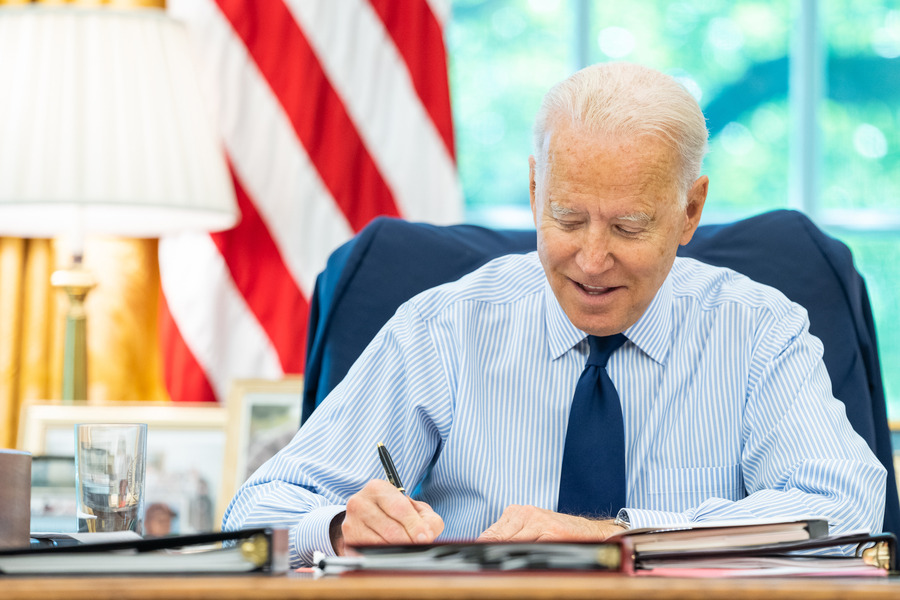Sam Nunberg’s Media Meltdown—and What He Might Want to Remember About Special Prosecutors’ Powers
It is an understatement to say that Sam Nunberg is playing with fire.
Nunberg, a longtime Trump adviser and former campaign aide who is on the outs with the president, went on a bizarre rampage of media appearances Monday afternoon in which he mocked Special Counsel Robert Mueller, declared his intention to not cooperate before the grand jury in the Russia investigation, and appeared to speculate wildly on President Trump’s involvement, or lack thereof, in wrongdoing during the campaign.
Published by The Lawfare Institute
in Cooperation With

It is an understatement to say that Sam Nunberg is playing with fire.
Nunberg, a longtime Trump adviser and former campaign aide who is on the outs with the president, went on a bizarre rampage of media appearances Monday afternoon in which he mocked Special Counsel Robert Mueller, declared his intention to not cooperate before the grand jury in the Russia investigation, and appeared to speculate wildly on President Trump’s involvement, or lack thereof, in wrongdoing during the campaign.
To the Washington Post, Nunberg announced that he had been subpoenaed by Mueller’s grand jury and that he intended to tear up the court document on television rather than comply. To the New York Times, Nunberg complained that Mueller’s team had “requested a ridiculous amount of documents”; the subpoena, published by the Post, asks that Nunberg preserve his communications with a variety of Trump affiliates (including the president, Roger Stone and Steve Bannon) from Nov. 1, 2015, to the present. To MSNBC, Nunberg declared that Mueller is “not gonna do anything” and that “I think it would be funny if they arrested me.” And on CNN, Nunberg announced: “Donald Trump caused this, because he’s an idiot.”
Nunberg sat for an interview with Mueller’s team last week, but he appears to have turned against the special counsel in a fit of pique over the breadth of the subpoena handed to him by the grand jury. “Should I spend 80 hours going over my emails, Jake?” he asked CNN’s Jake Tapper, somewhat plaintively. (“It sounds like a pain,” Tapper responded, “but he is the special counsel.”)
Nunberg: "Do you think I should cooperate?" @JakeTapper: "If it were me, I would." https://t.co/QBKkHJEb7Y
— Brian Stelter (@brianstelter) March 5, 2018
Along with the time commitment required by the subpoena, Nunberg appears to object to the grand jury’s demand for his communications with Stone, the notorious Republican political operative whom Nunberg told the Times that Mueller is “unfairly targeting.”
“I’m definitely the first person to ever do this, right?” Nunberg asked Tapper during the interview. Actually, he is far from the first. And before proceeding further on this jag, Nunberg might pause to reflect on the case of Susan McDougal, the last witness in a major investigation of a president who went out of her way to defy a special prosecutor wielding a grand-jury subpoena.
Let’s recap for those who don’t recall: McDougal was a figure in the Whitewater investigation of former President Bill Clinton. Independent Counsel Kenneth Starr had prosecuted Susan McDougal, along with her former husband, Jim McDougal, for fraud and other charges in connection with the management of a savings-and-loan in Arkansas. After her conviction, Starr sought to call her before a grand jury to testify about the Clintons. She refused to answer questions. He moved to have the court supervising the grand jury hold her in civil contempt—and it did.
McDougal spent 18 months in jail on the contempt charges—the maximum allowed under the contempt statute—as the court sought to compel her testimony. But Starr wasn’t done. Civil contempt is about coercion, not punishment. After her civil contempt detention was finished, he sought and received a grand jury indictment against McDougal for criminal contempt (criminal contempt is about punishment of the crime of contempt of court) and obstruction of justice as well. McDougal was eventually acquitted of the obstruction charge, while the jury deadlocked on the two contempt charges. But the acquittal and deadlock were not a reflection of any serious factual question about what had happened; rather, they were an example of pushback at Starr for perceived overreach. (Clinton eventually pardoned McDougal on his way out of office.)
The point is that federal prosecutors have robust powers to deal with recalcitrant witnesses, and special prosecutors in high-stakes matters involving the president of the United States have particular incentives not to tolerate contumacious conduct on the part of witnesses they subpoena. Nunberg may think it would be “funny if they arrested me.” We suspect he’ll find it less so if and when “they” actually do.






